Yes, there is a time in our travels that we will always remember by our friend Aachi – and the day we ate 50 dishes. Aachi is a kind and generous, but oh so astute business woman. Here’s the story.
“It is a part of our culture to put others before yourself.”
We are enjoying a leisurely dinner with proprietor Mrs. Meenakshi Meyyappan on our first night at her boutique hotel, The Bangala. She is sharing the essence of her people’s – the Chettiyars – particular brand of hospitality.
“Things should always be done with finesse – especially cooking and serving. It’s the South Indian way to care about the little things that make people more comfortable.” Steaming hot hand towels appear before we begin our meal, case in point.
A glance around the room reveals awards, newspaper clippings, black and white photos of family members and mementos of special gatherings. An extensive array of matching cutlery, glassware, china and linens adorn the tables.
Only a few guests are staying here during this second monsoon shoulder-season. But slowly, group by group, they trickle down to dinner.
The guests
There’s a Swiss marketing executive named Rachel who visits twice yearly. She is a close personal friend of our host. A Japanese couple who are opening a South Indian restaurant in Tokyo are here. They’re taking extensive training with The Bangala chef team.
A few Indians from Delhi and parts north are the last to arrive. News of The Bangala has made the papers there. The culinary curious make the pilgrimage south for the sake of novel tastes and the chance to escape the madding crowds of their daily existence.
The setting
Slow moving ceiling fans circulate the tropical night air in the softly lit dining room. We face the compound’s central courtyard.
A few shade trees grow out of the manicured lawn. Ornate white cast iron furniture is arranged pell-mell beneath them. An open-aired cooking school building lies to the left. A long two-storied building directly across houses a larger kitchen, staff dining hall and guest rooms.
To the right, central steps lead up through a library and lounge in the quadrangle’s other building. Brightly pillowed rattan chairs and sofas tempt a detour for those on their way to the lobby and reception on its front side.
Despite the fans, moisture gathers on brows, upper lips and necks as we eat. It’s a cool 30 degrees Celsius by local standards but the late September rains and proximity to the equator draw a thin line between air and water. Dampness is close at all times. Its body presses against you.
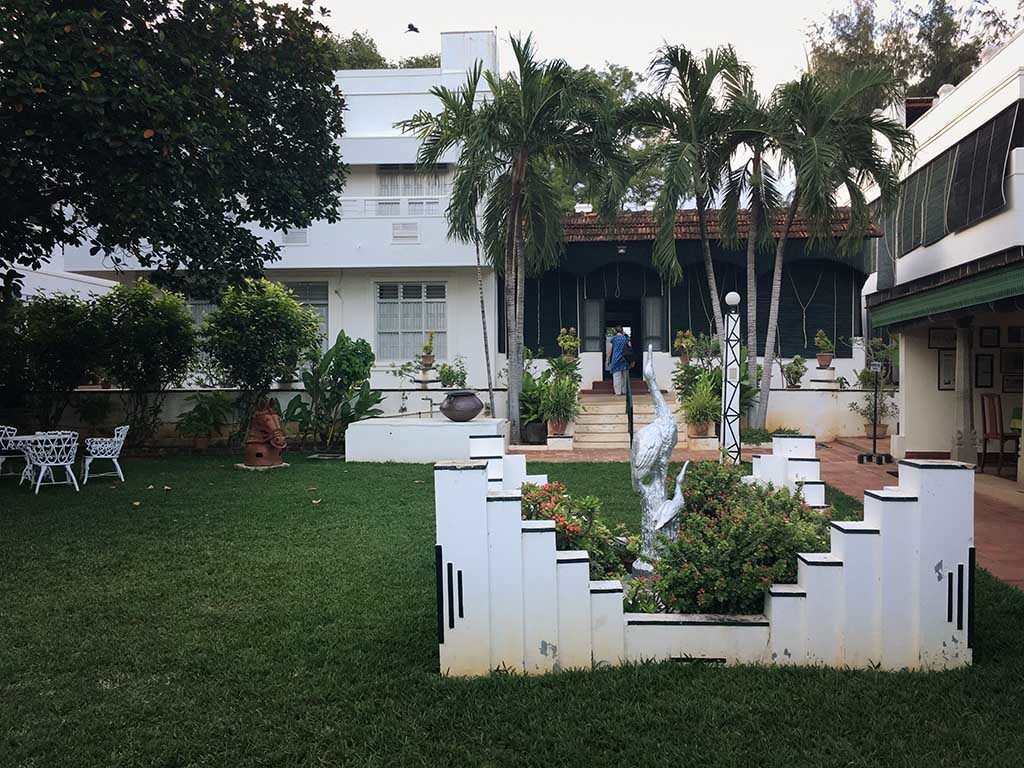
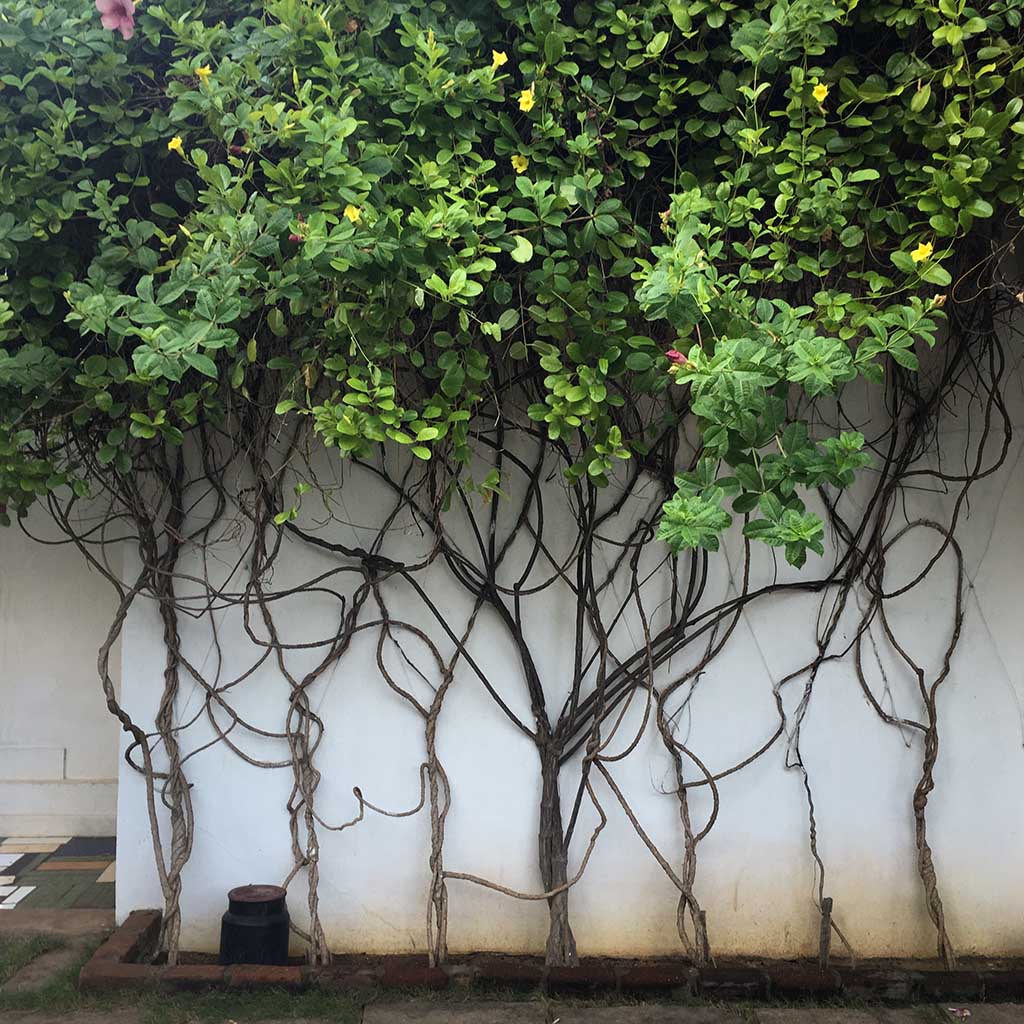
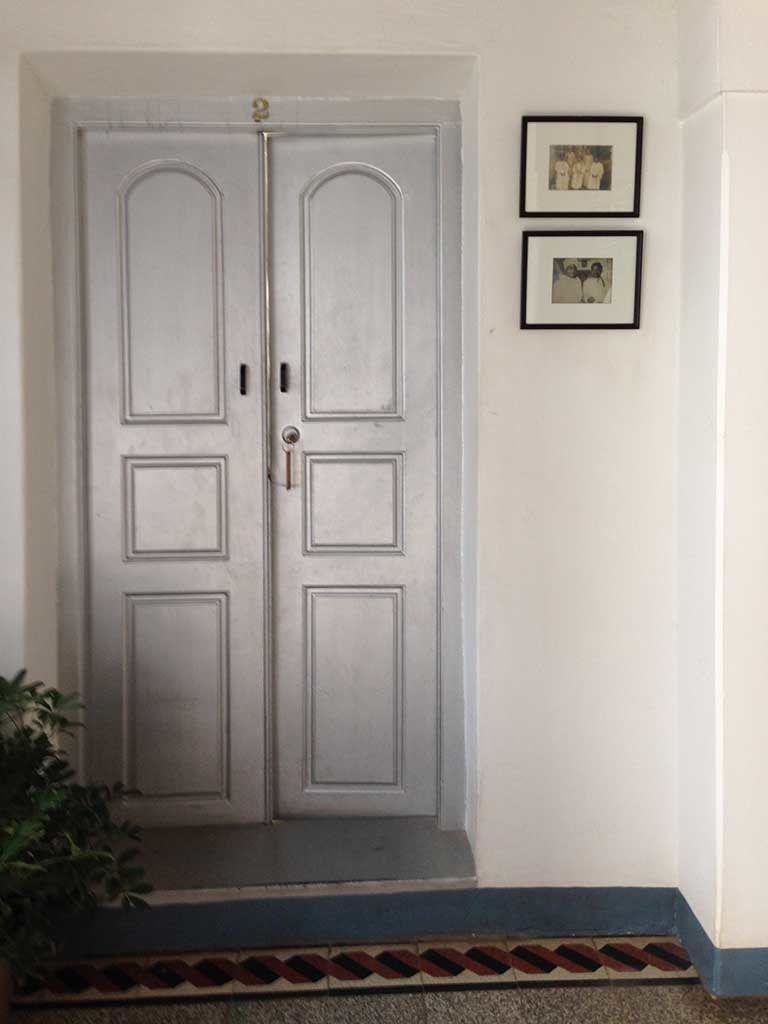
The Bangala, Karaikudi, Tamil Nadu. 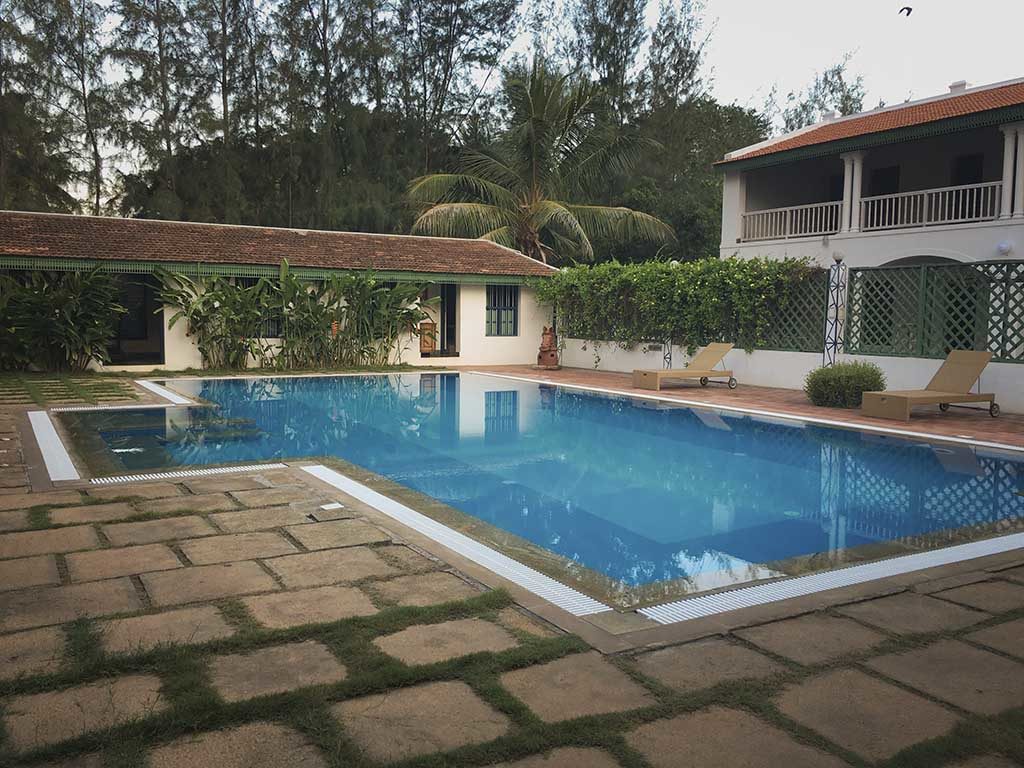
Service
A half dozen white haired male servers are one with the climate. They give it no notice. They stay cool in the clean white shirts and long dhotis (white sarong skirts) they wear.
They slip silently across the cool tile floors to serve the meal our hostess has ordered. While also simultaneously attending to all the guests around the room. A well-oiled team, they’ve served the Meyyappan family for decades.
Mrs. Meenakshi Meyyappan, the matriarch of the family that owns The Bangala, has strategically chosen the items on our plate to begin our indoctrination into the local cuisine. We are here to understand firsthand the saying, “One is fortunate to eat like a Chettiyar.”
The Chettiyars
We expect the unexpected in India. But, the Chettiyars are in a league of their own when it comes to surprising cultural enclaves.
They were, and mostly still are, a rich merchant class who reached their zenith of wealth in the eighteenth-century. Financiers in China, Sri Lanka, Burma and Malaysia, they built on wealth originally procured from centuries of trading in gems, spices and silks.
The men travelled and lived abroad for long stretches of time. And, the women stayed at home to manage their staff and households.
Chettiyar homes are unlike any other in India.
They are sprawling concrete-walled mansions that occupy the 70 some villages in this 1500 square kilometer region of south eastern Tamil Nadu known as Chettinad.
Around them lie the humble huts and homes of goat herders and farmers who eke out a life in this normally arid corner of the country. The contrast in situations and comfort is dumb-founding.
Food story
Among other things, the Chettiyar’s wealth, customs and traditions created a truly unique food story. The recipes that go along with her family’s chapter in this heritage have been lovingly captured by Mrs. Meyyappan. Together with her friends Sumeet Nair and Jill Donenfeld she gathered them in an award-winning cookbook called The Bangala Table.
Previous to this project, the only record of the recipes was in the sharp mind of family’s chef for over 50 years, Karrupiah. Saving this knowledge is saving an important part of India’s heritage. How many other recipes will be lost?
The cuisine, we learn, evolved from the Chettiyar’s travels throughout south east Asia. And, on a more personal level, from each women’s desire to keep her husband at home longer when he did visit.
“Food had to be lip-smacking and mouth-wateringly good,” Mrs. Meyyappan says with a smile. Our first bites of Chettinad Chicken reveal a subtly of spicing and quality of ingredients that could definitely entice someone to linger longer.
Aachi
Mrs. Meyyappan is also known as “Aachi.” The term is both an endearment and one of immense respect. An Aachi is the governor of home and staff.
“Our” Aachi and her peers in the other Chettiyar families are responsible for arranging all family gatherings in their Chettinad homes. Two hundred people or more may gather for weddings, anniversaries and festival reunions. Elaborate banquet feasts are the specialty.
It is no wonder that Aachi is the embodiment of gracious hospitality. Through years of managing the life of her family, other people’s comfort is always top of mind, whether caring for family or for her fortunate guests at The Bangala.
An octogenarian, Aachi’s size and age belie her strength. She is petite in height and always wrapped in the abundant cloth of a linen or silk sari. She wears her hair pulled back in a practical grey bun or plait. Wire-framed spectacles sit on a lined face with a piercingly astute countenance. Throughout our visit the chance to converse and be near reveals more of her personal story.
Her story
Aachi has travelled the globe and is keenly aware of current affairs. “I travel to absorb,” she tells us as she recalls restaurants, food, museums and art shows in vivid detail. She is intensely proud of her heritage.
Born into an ex-pat Chettiyar family in Sri Lanka, she lived mainly in Chennai for her married life. The family only came to their Chettinad home for weddings, reunions and gatherings.
Grown children and a decreasing number of responsibilities challenged Aachi to create The Bangala to keep herself occupied. The building was formerly used as a British men’s club but was owned by the Meyyappan family for five generations.
Her family’s mansion is a few lanes away. When we visit the full complement of staff including her controller and caretaker are on duty.
Business woman
As a business woman, Aachi is a collaborator and relationship builder with a grasp on social media, marketing and financial reporting that would rival any Bangalore dot-commer. She gathers industry intel and is sought out for advice on all sorts of matters. She is at once commanding and classist; but also, kind, generous and loyal.
I once brought a group to visit The Bangala and made the mistake of doing so – ONLY FOR LUNCH. Aachi was quick to advise that on future visits, “You must plan to let your guests stay here awhile and fully experience this place.” I’ve always appreciated directness.
Aachi does not believe in retirement. “I was asked for advice on healthy aging by the builders of a nearby nursing home. Sadly, we have need of them in India now.
I told them, ‘keep the elders busy at all times.’” It was as though she was foreshadowing the next day for this visiting photographer and writer.
A case of inadvertent overindulgence
The next morning, we arose with ravenous appetites. We dug heartedly into our breakfast knowing we’d have a long morning of cooking and photography with The Bangala team.
There was a warmly spiced fruit compote to start. Pongal (a semolina porridge with spices) came next followed by eggs. Then we enjoyed three chutneys and a masala dosa (rice and lentil crepes with a potato stuffing). Fresh rolls with homemade jams, papaya slices with lime and masala chai and freshly squeezed juices rounded out the feast.
We ate it all. Again, our thinking was we might only eat this until a few bites of whatever we cooked after our lesson. That would likely be it for the day. Oh, how wrong we were.
Tallying up our Thali
Cooking with Karrupiah, capturing the beauty of the cooking school’s antique cookware, photographing the man himself and his beautifully plated food took until mid-afternoon. We were surprised to find ourselves hungry again.
The team at the Bangala were concerned at how long we’d worked. “Please sit – have your thali (multi-course) lunch.”
Okay, we thought. We’ll eat now and then be set for the day.
Again, we tucked in with gusto as salads, curries, dal, breads, pickles, chutneys and fruit topped our banana leaf plate. Payasam (sweet milk pudding) and ice cream followed. And, we ate that too.
We rolled back from the table, bellies content. Counting between us, we racked up that we’d already eaten an amazing 25 things that day. With our Travel XS guide Charles, we waddled off to shop for antiques in Karaikudi’s commercial district.
Evening plans gone awry
The evening plan was another cooking lesson at a Chettinad mansion hotel called Visalam by the CGH (Clean, Green and Healthy) Earth Experience group of hotels. We expected a quick demo and light bite.
We were pros, we told ourselves. After our walk in Karaikudi’s warren of lanes, we could easily pull off a few more bites to the already enormous amount of food we’d eaten that day. Famous last words.
As we prepared to leave, an unexpected call came from Aachi’s mansion. She had gone for an afternoon rest and wondered if we could we visit and take her portrait?
Our North American sensibilities thought, great, we’re in a bonus situation. We can easily fit in a portrait with this local legend and still make the cooking demo just down the road.
The caretaker met us at the door. A lengthy tour of the mansion later, we captured Aachi’s photo in the dying light of the day.
And then, just as were set to leave, our incomparable host asked us (and we could do nothing but accept her invitation) to join her for a late dinner. “I’ll be waiting at my table for you.”
Her voice rang in our ears as we scuttled of like two fat little mice. An impending sense of how much more we really had to eat that day began to sink in.
Visalam
The looming grey skies that had framed our silver-haired subject for her portrait emptied their deluge as we drove through the now pitch-black night. Our driver lurched through the pot-hole lined lanes for over half an hour until we arrived at the beautifully restored Visalam.
The delightful appetizer the local chef prepared was a treat and we thought we were ready to leave to face Aachi at her generous evening table when everything went sideways –AGAIN.
In the kindest and most well-intended of ways, our hosts declared, “We are so glad you are here. We prepared a wedding banquet for you!”
Oh. Dear. God. Of. Stomachs.
We were guests of honour at dinner. That meant there were at least a dozen servers waiting on us.
We began to leak giddiness from every pore and had to stifle inappropriate laughter. It mounted to a quiet sort of food hysteria, as delicacy after delicacy was laid before us.
A staggering 14 items were deposited on our banana leaves. We could appreciate them in theory greatly but, in reality, only by the nibble.
It was after nine o’clock when we rushed into the dining hall back at The Bangala. True to her word, Aachi and her friend Rachel sat waiting for us.
“We’ve just started with the soup,” she said as she beckoned to the servers to bring ours. Five courses later, surviving only by the stimulation of our host’s invigorating conversation, we took our bloated stomachs across the lawn, up the stairs and closed the door of our room behind us.
Stretching out on the cool white cotton spreads of our twin beds we groaned at the naivety we had begun the day with. If only we had known. We began to count the number of dishes we had eaten and stopped at 50.
How could anyone have known?
Aachi is an unforgettable human being in her own right. We’ll never forget Aachi and the day we ate 50 dishes. This day in our food life will act as a testimony to the largess of both her character and her hospitality. As we left the next morning, we made plans to meet her and Rachel and a mutual friend in Pondicherry.
We know we are blessed to be connected with this living legend. From now on, no trip to Tamil Nadu will ever be complete without a visit to The Bangala or Mrs. Meenakshi Meyyappan.
 Gratitude
Gratitude
Thank you to the KTM Society and Travel XS for sponsoring our travel throughout South India and Mrs. Meenakshi Meyyappan and her team at The Bangala for their gracious hospitality during our Faces, Places and Plates stay in Karaikudi, Tamil Nadu in 2016.
All words and photos are our own and were not shared with the sponsors before publication.

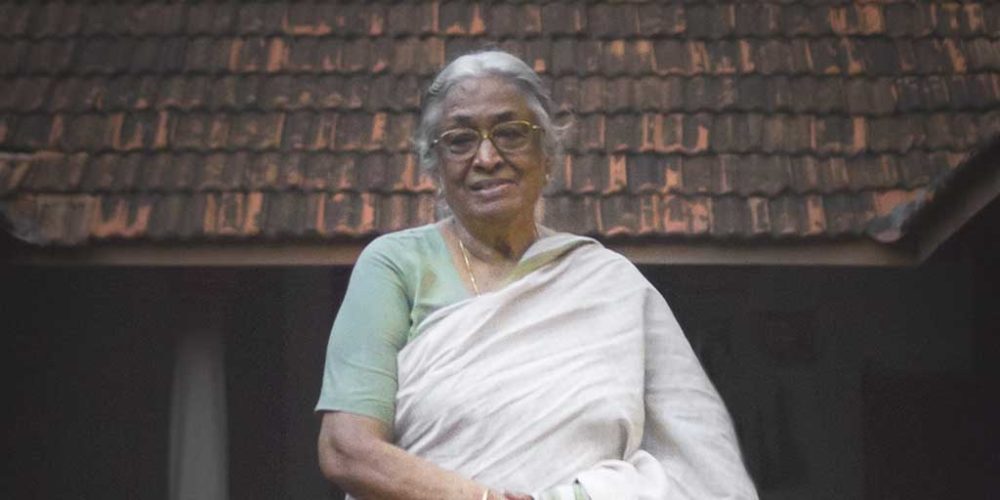
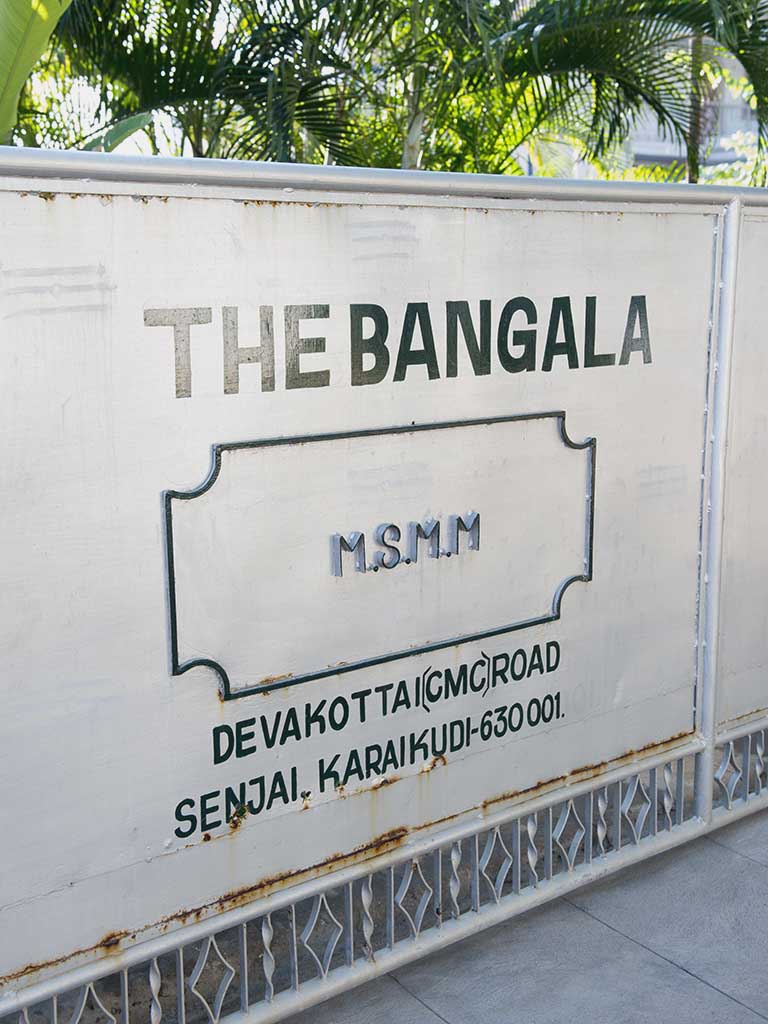
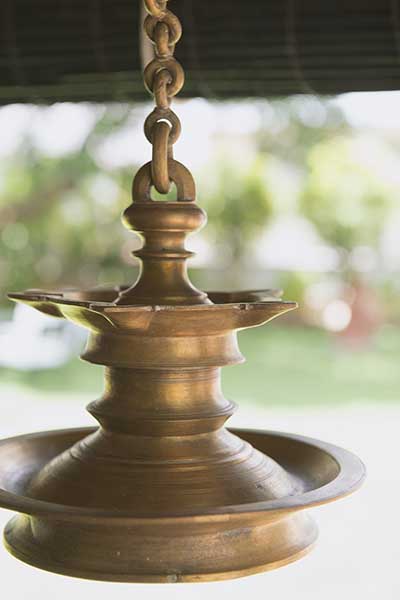
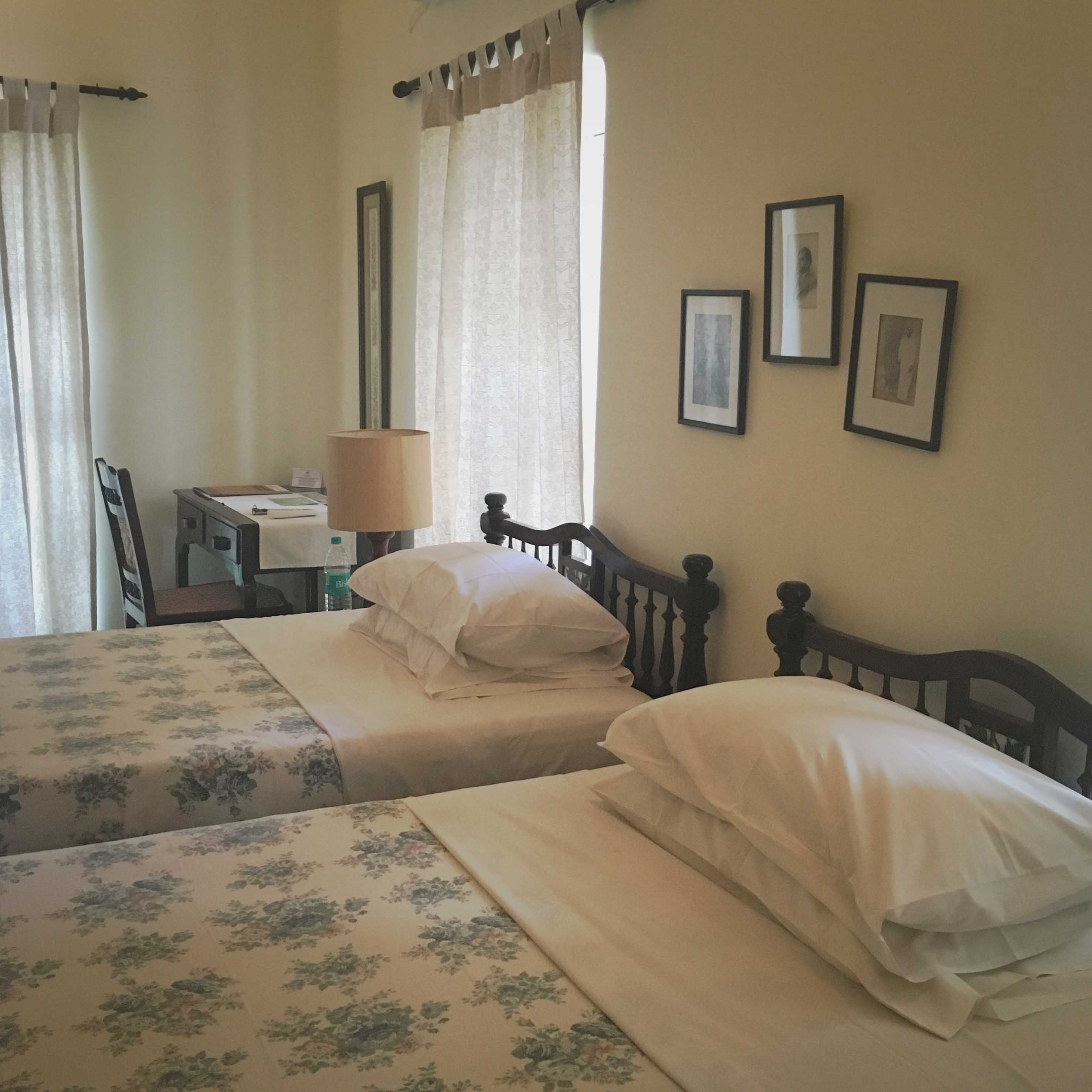
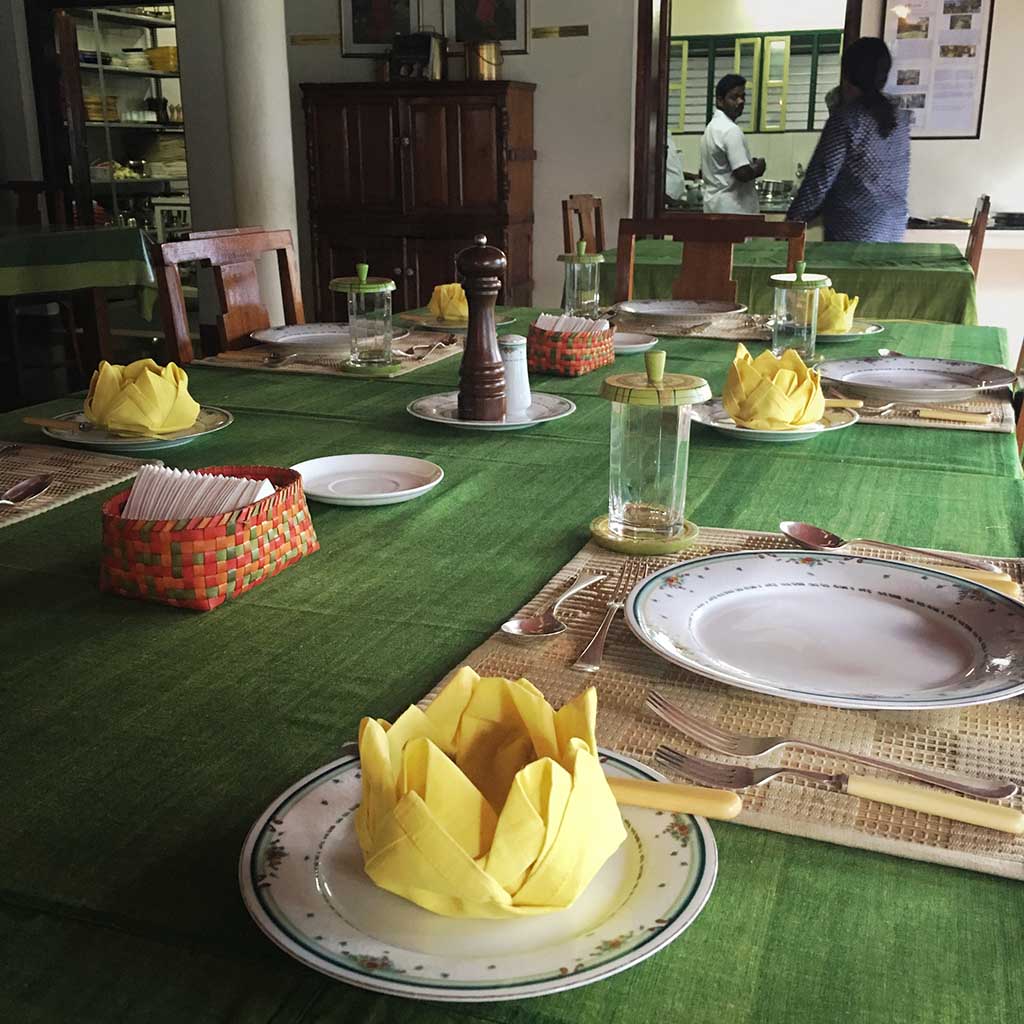
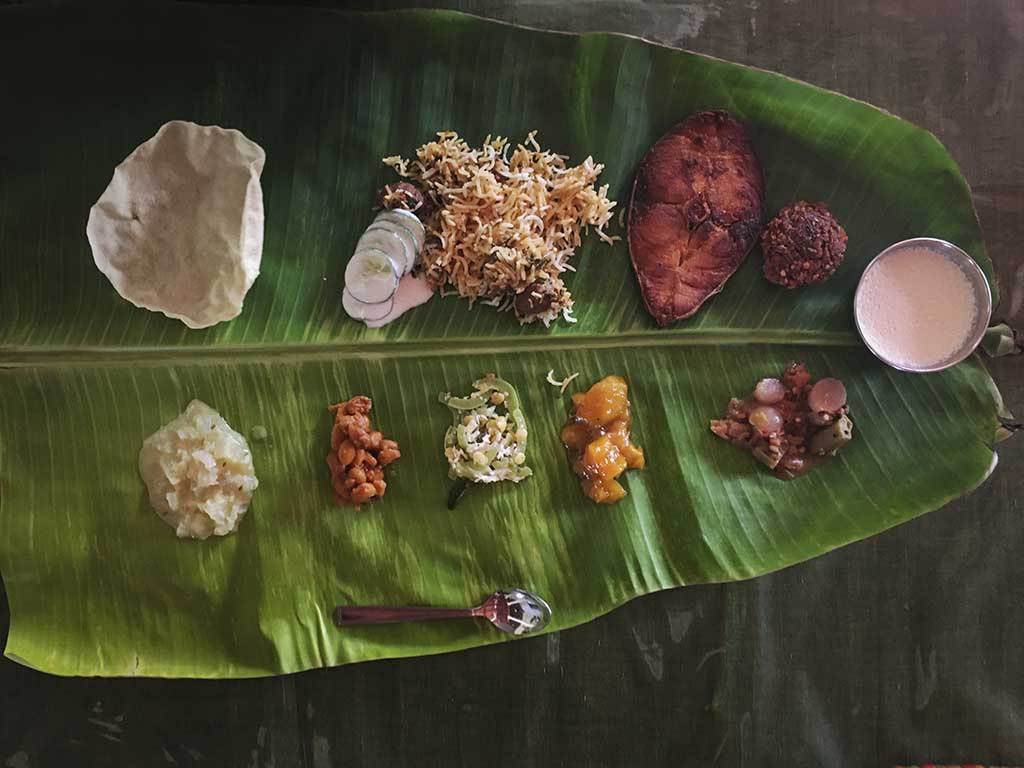
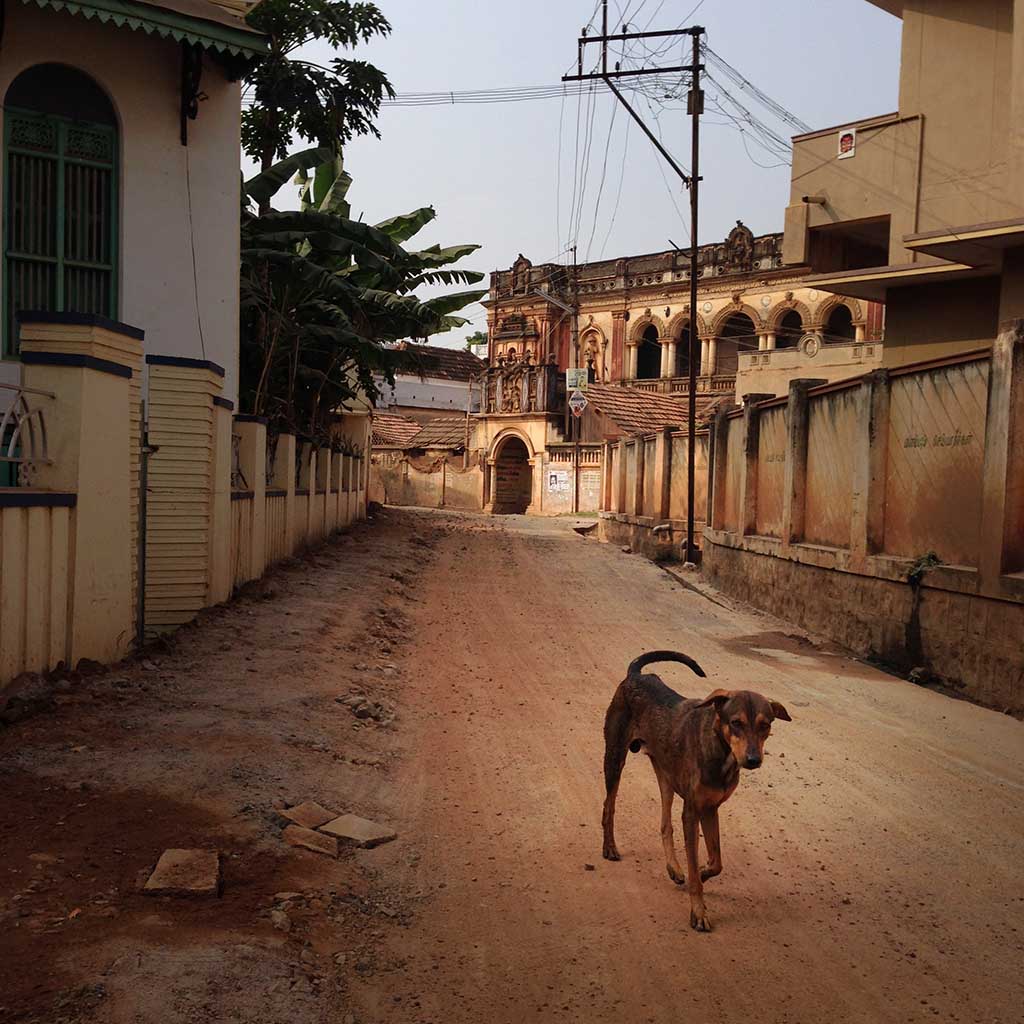
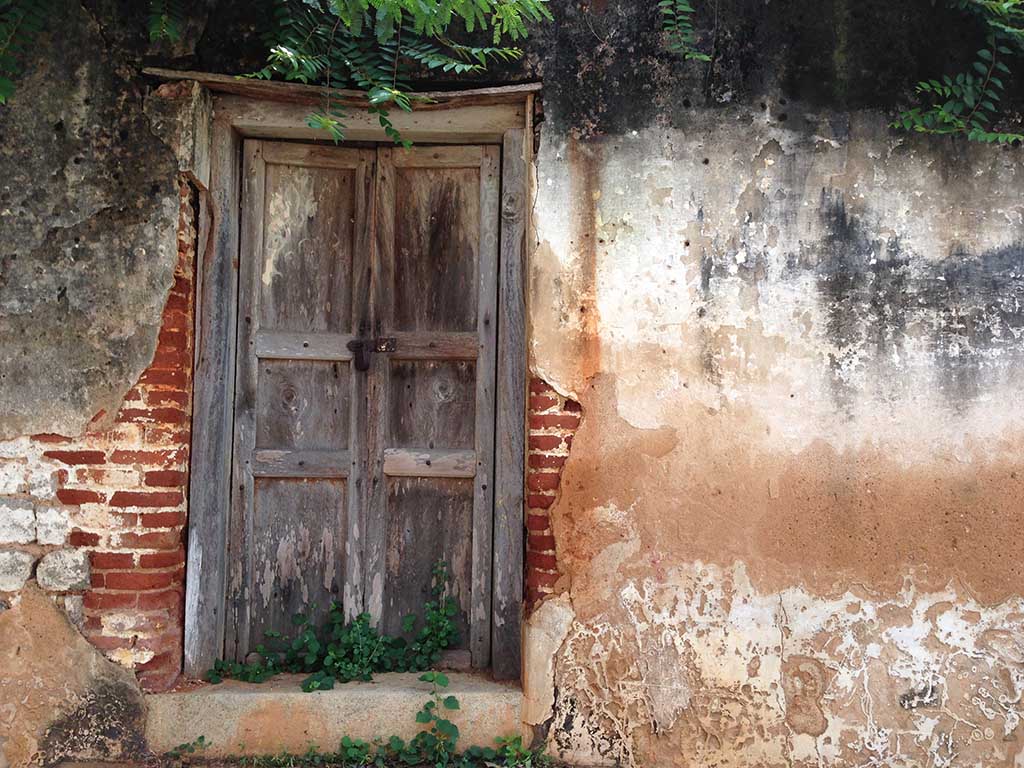
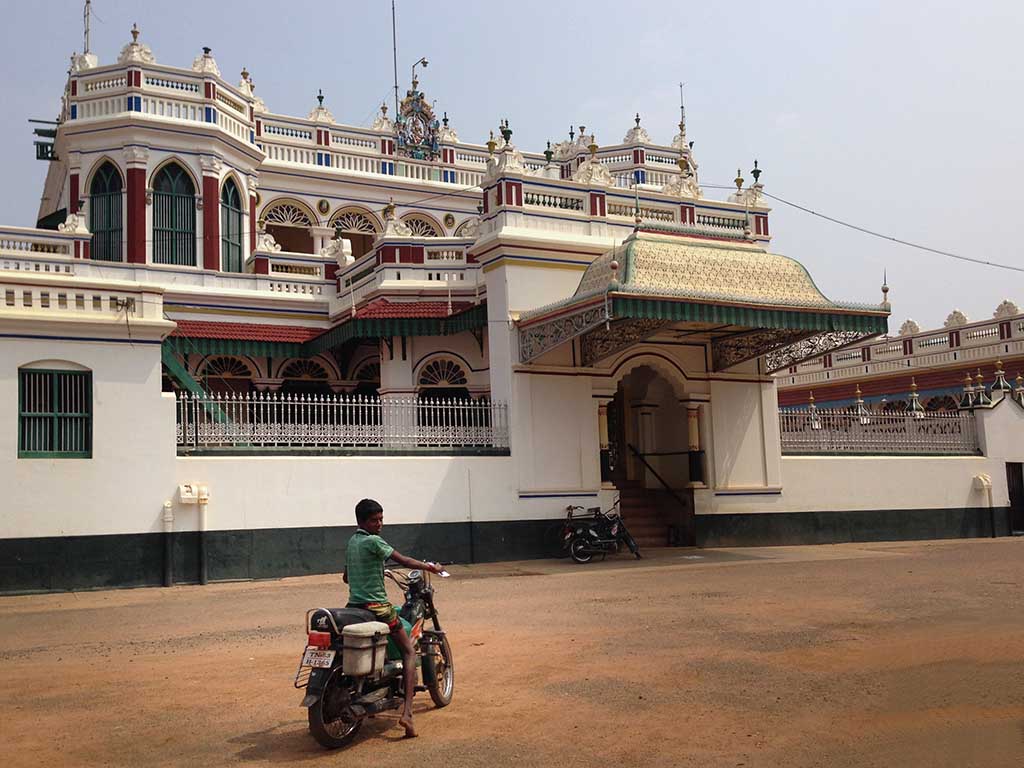
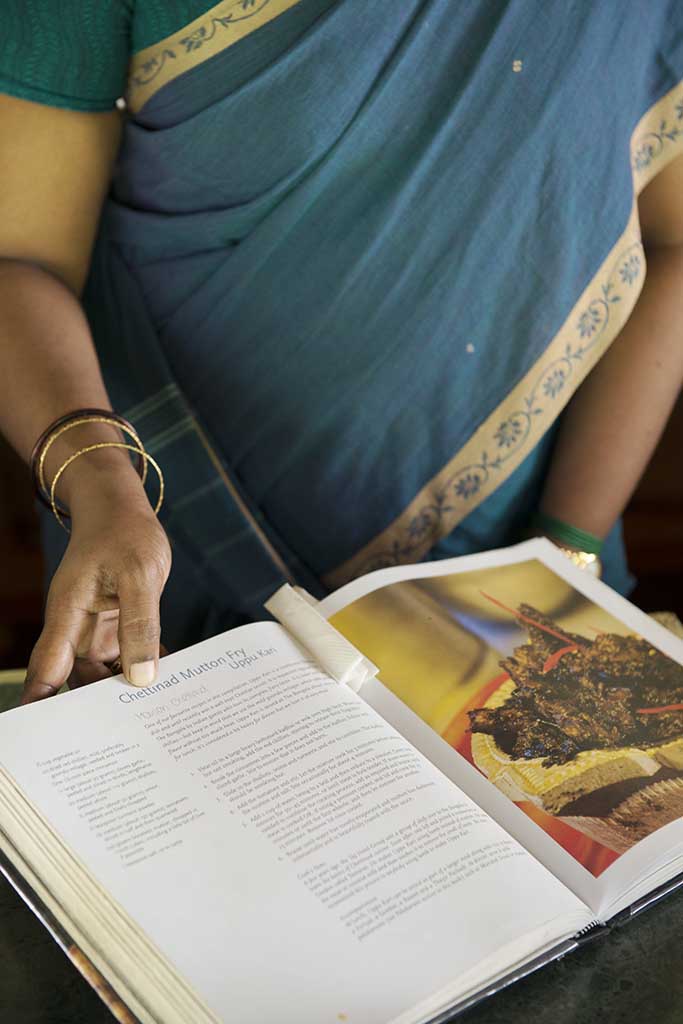
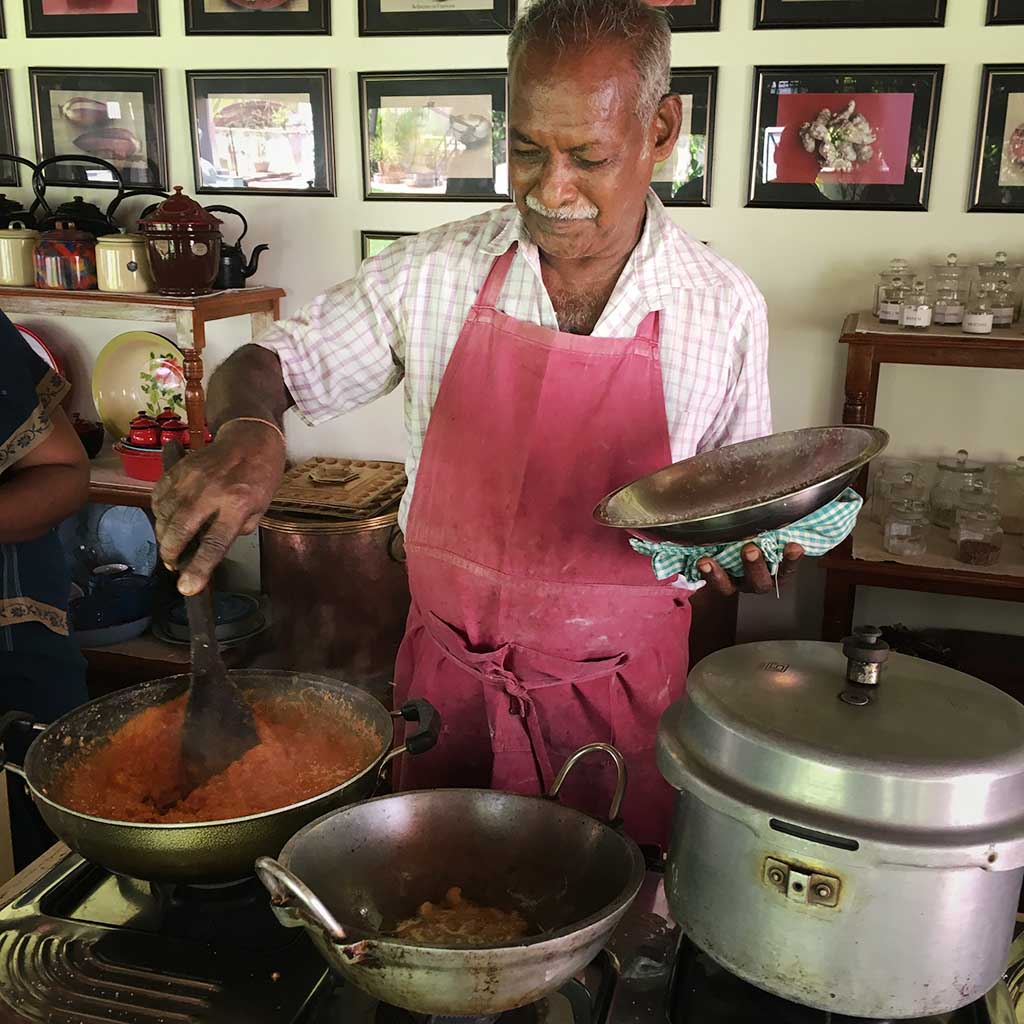
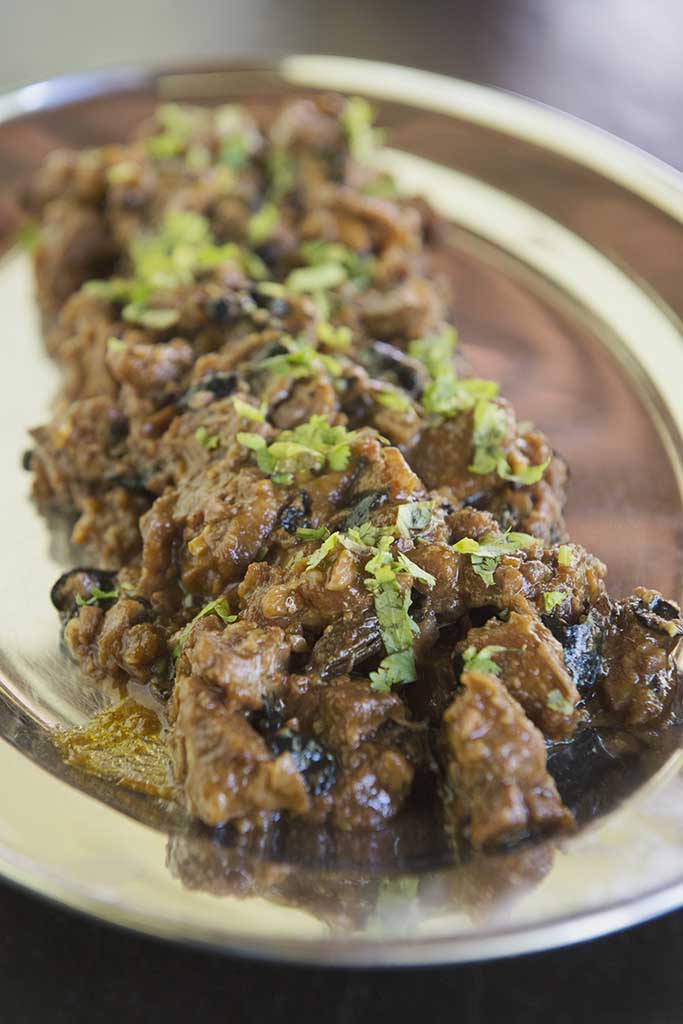
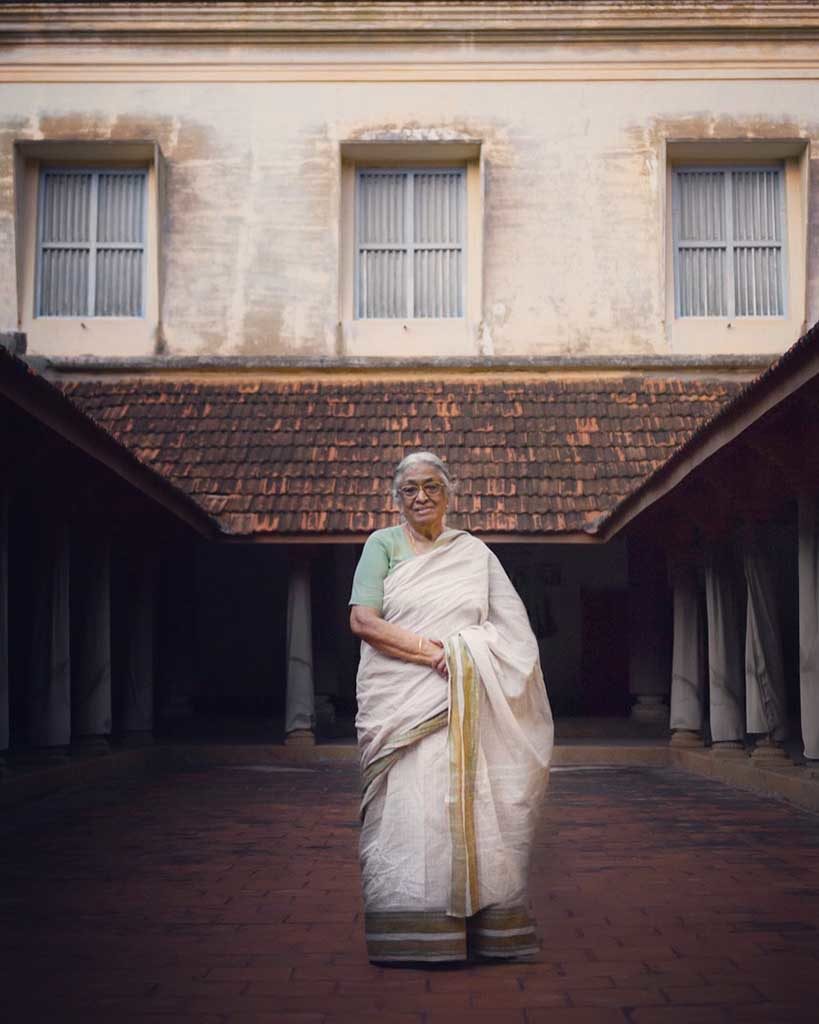
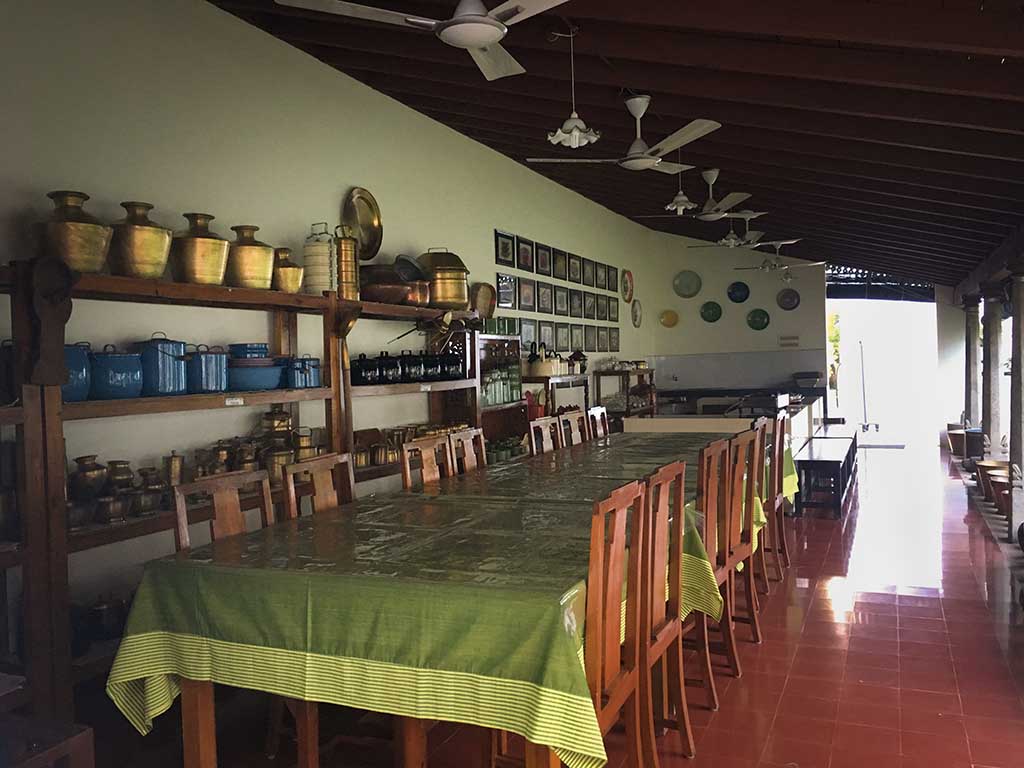
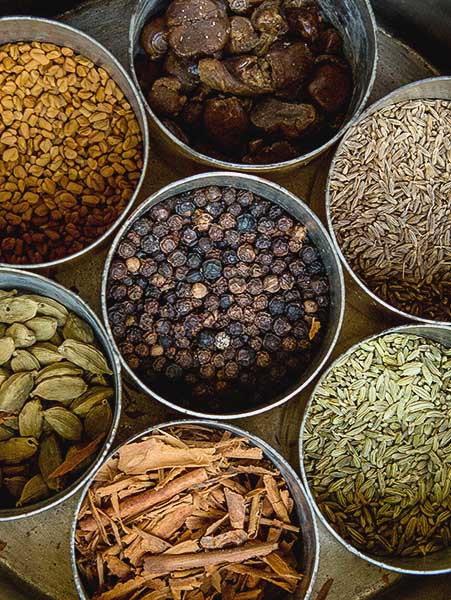
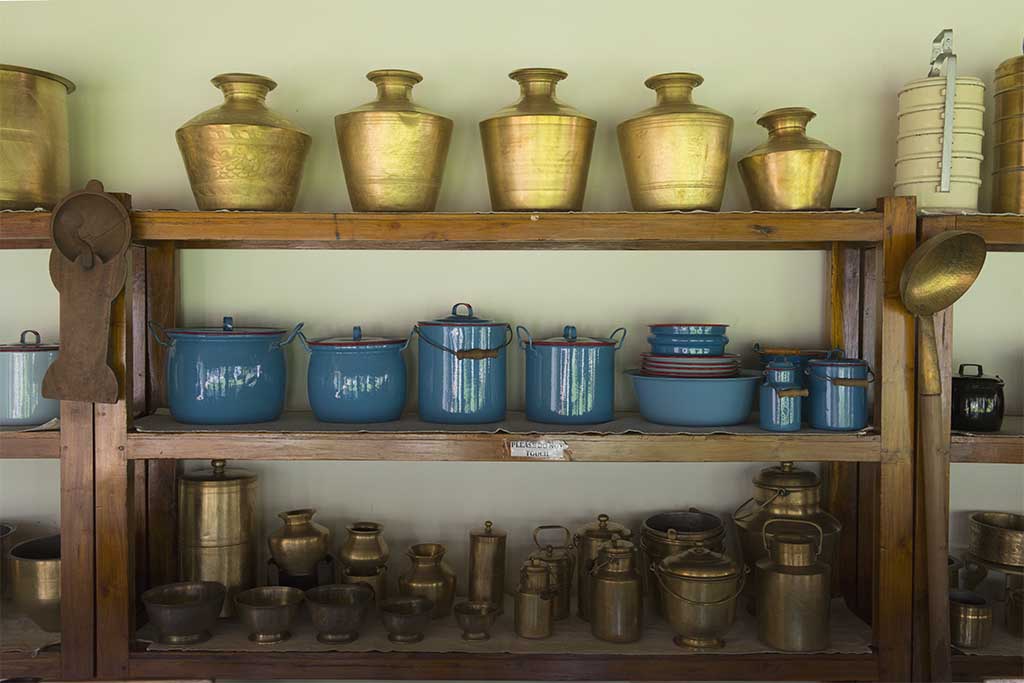
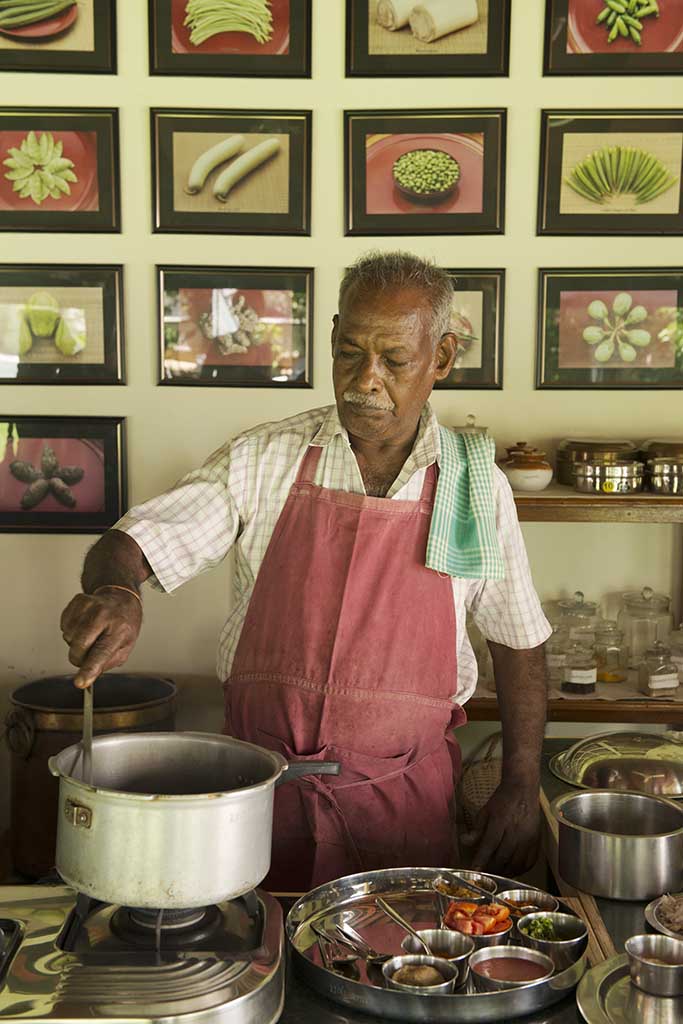
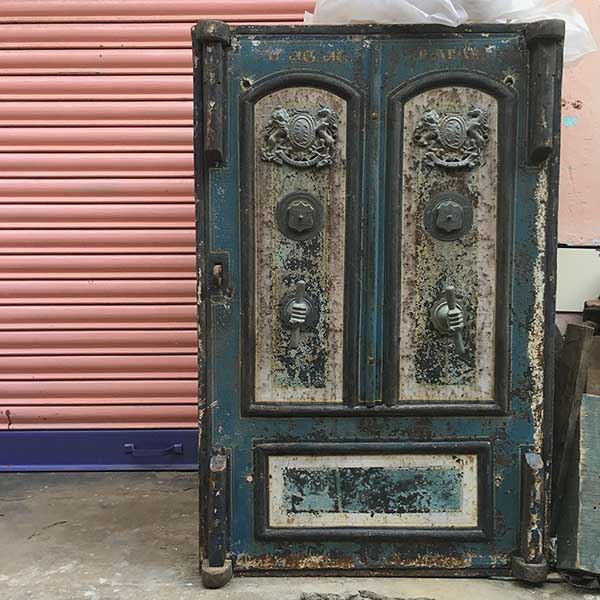
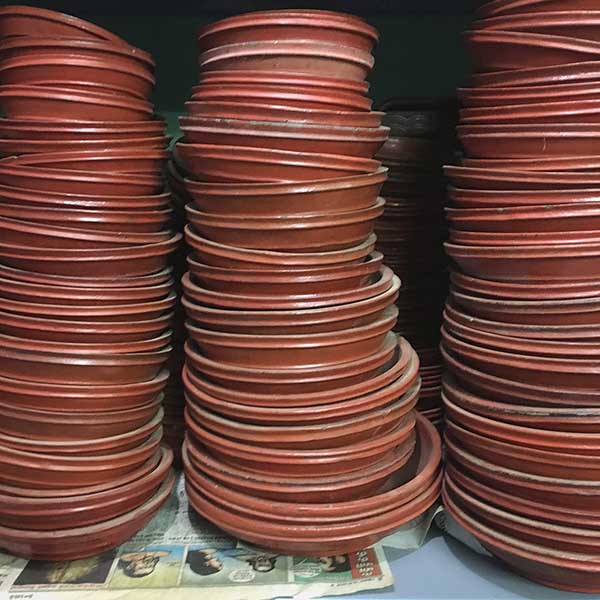
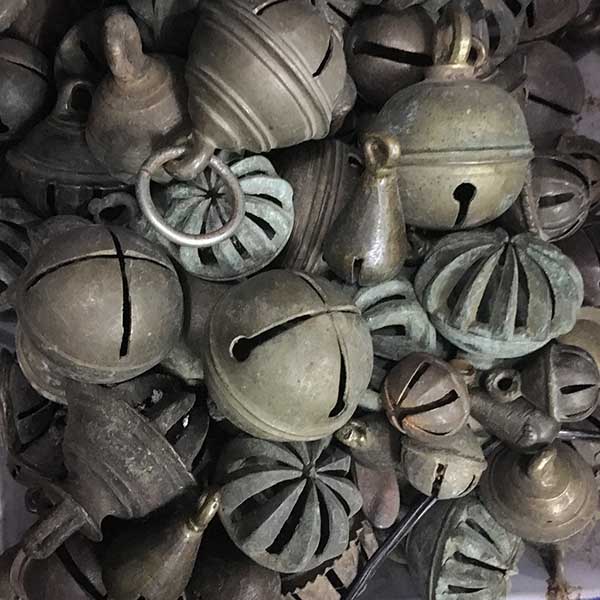
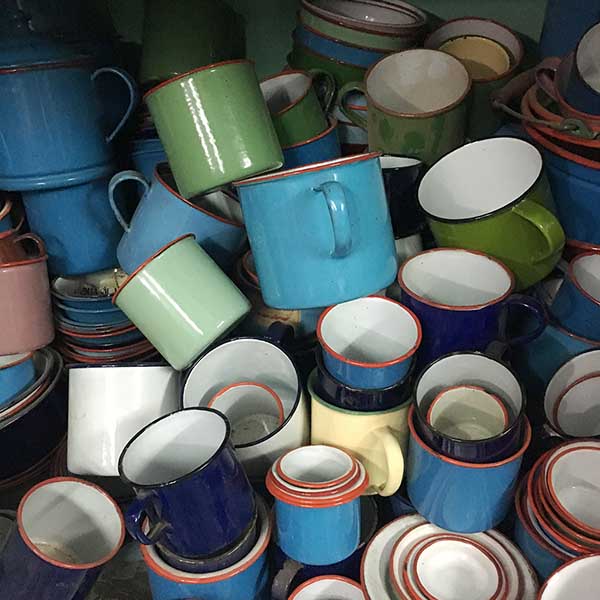

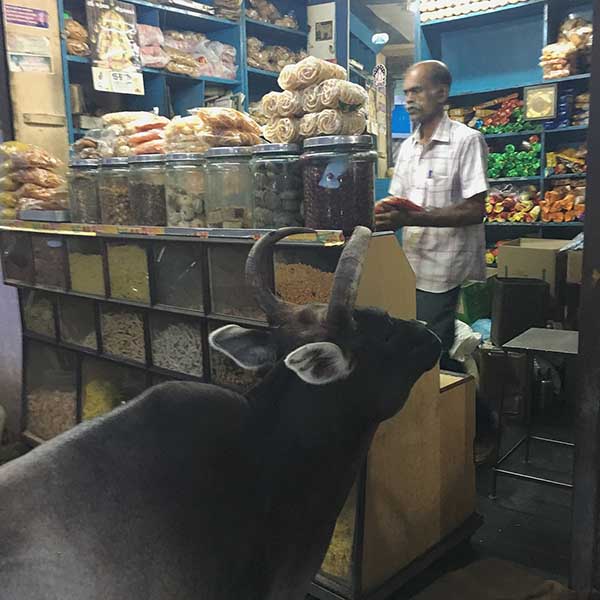
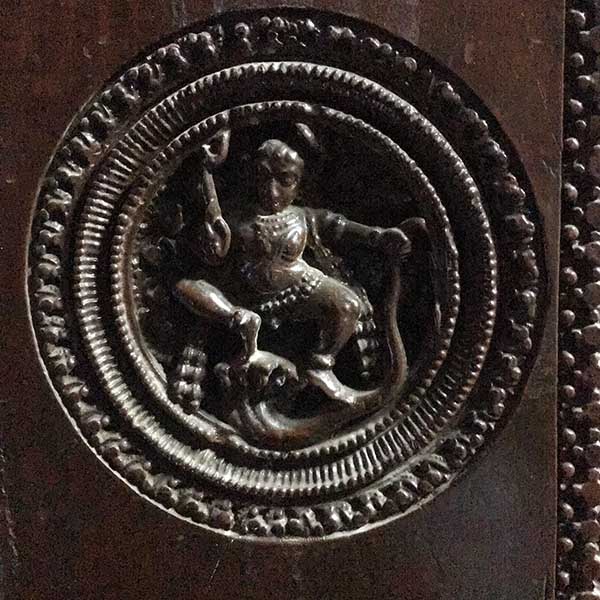
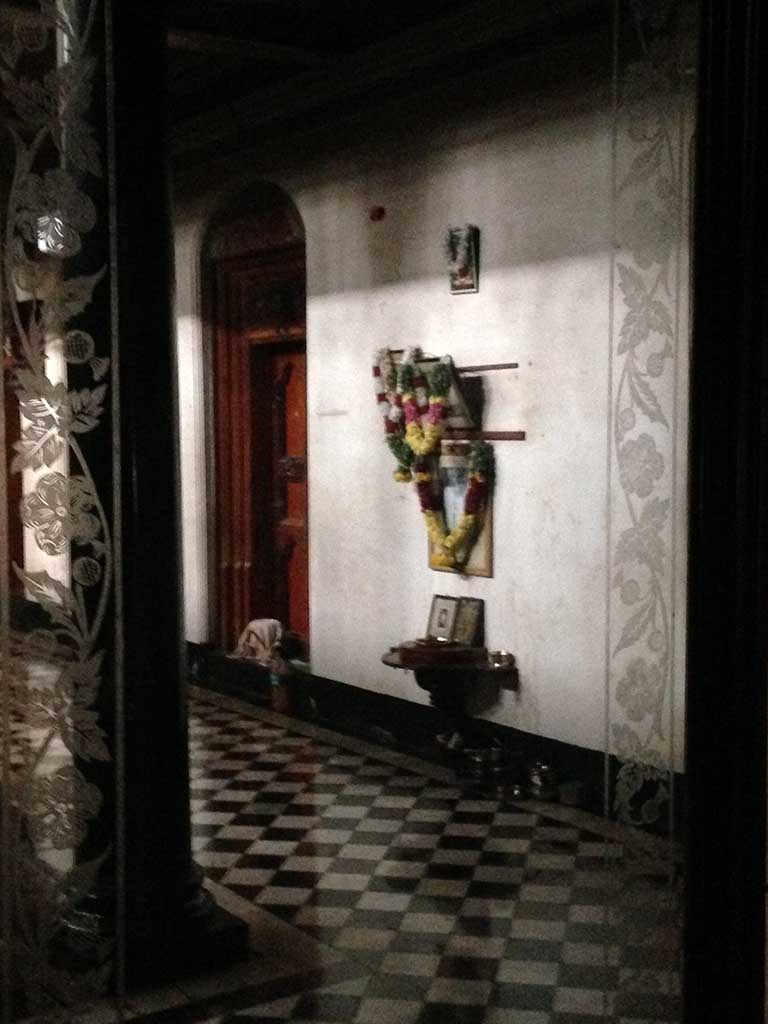
Beautiful testimony to Aachi’s hospitality. Thank you. However, a bit in the middle made me extremely uncomfortable. Please don’t exoticise the waiters by their skin tones, it’s got heart of darkness vibes.
Dear Anjali,
Thank you for bringing this writer the needed awareness to save her heart from darkness. The passage you referred to has been edited.
It was very kind of you to point out my blunder.
I am truly grateful.
With kindness,
Karen